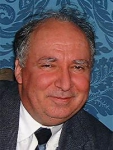Framing Questions
INSPIRATIONAL, 2 Apr 2018
Prof. Dietrich Fischer – TRANSCEND Media Service
The psychologists Amos and Tversky developed the theory of “framing” by demonstrating that people give different answers depending on how a question is asked. The following are two examples.
If you ask people, “You stand in line for a movie which costs €10 admission and discover that you just lost a €10 bill. Would you still buy the movie ticket?” Most people say yes. If they are asked, “You stand in line for a movie AND discover that you just lost the €10 movie ticket. Would you buy another one?” Now most people say no.
The two situations are identical, but in the first case, the €10 bill is associated in people’s mind with their general account, which is independent of the movie. In the second case, they associate the ticket with the movie and decide that they are not going to pay €20 to see the movie.
Another case is the following. If people are told, “You are asked for advice to save a village with 600 inhabitants from an avalanche. If you select course A, you can save 400 people for sure, and 200 will die. If you select course B, you may be able to save all 600 with a two third chance, but there is a one third chance that all of them die.” Most people will choose course A.
However if they are told, “If you select course A, 200 people will die for sure, and 400 will be saved; if you select course B, you may be able to save all 600 with a two third chance, but there is a one third chance that all of them die.” Now most people prefer option B.
We have a natural tendency to cling to certainty if it is positive and to avoid something negative that seems certain. In fact, both formulations describe exactly the same two choices. The art of framing questions has been skillfully used by pollsters to elicit the answers their sponsors want to hear.
_________________________________________
 Dietrich Fischer (1941-2015) from Münsingen, Switzerland, got a Licentiate in Mathematics from the University of Bern 1968 and his Ph.D. in Computer Science from New York University 1976. 1986-88 he was a MacArthur Fellow in International Peace and Security at Princeton University. He has taught mathematics, computer science, economics and peace studies at various universities and been a consultant to the United Nations. He was co-founder, with Johan Galtung, of the TRANSCEND Network for Peace, Development and Environment in 1993.
Dietrich Fischer (1941-2015) from Münsingen, Switzerland, got a Licentiate in Mathematics from the University of Bern 1968 and his Ph.D. in Computer Science from New York University 1976. 1986-88 he was a MacArthur Fellow in International Peace and Security at Princeton University. He has taught mathematics, computer science, economics and peace studies at various universities and been a consultant to the United Nations. He was co-founder, with Johan Galtung, of the TRANSCEND Network for Peace, Development and Environment in 1993.
Excerpted from Dietrich Fischer’s Stories to Inspire You – TRANSCEND University Press-TUP.
This article originally appeared on Transcend Media Service (TMS) on 2 Apr 2018.
Anticopyright: Editorials and articles originated on TMS may be freely reprinted, disseminated, translated and used as background material, provided an acknowledgement and link to the source, TMS: Framing Questions, is included. Thank you.
If you enjoyed this article, please donate to TMS to join the growing list of TMS Supporters.

This work is licensed under a CC BY-NC 4.0 License.